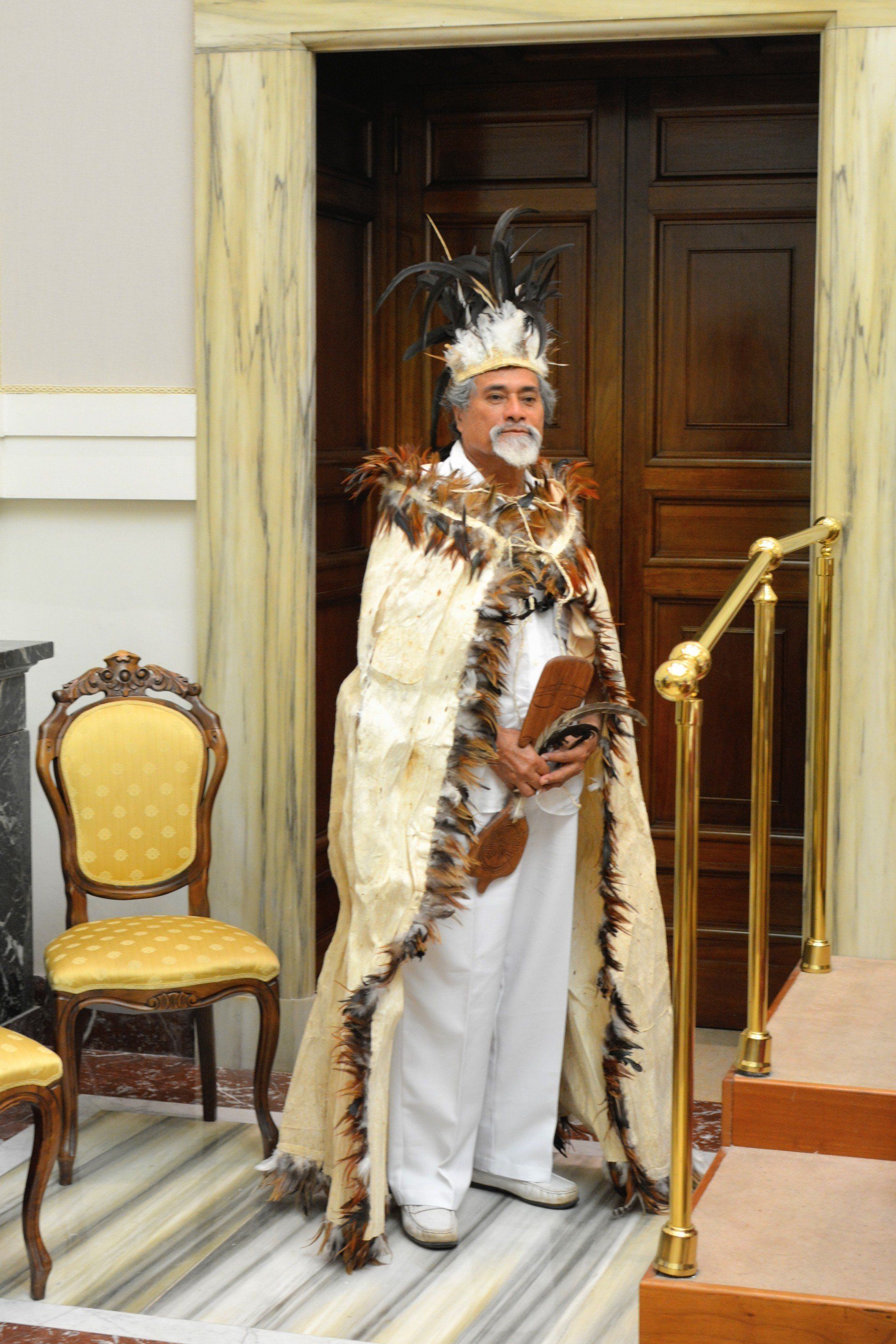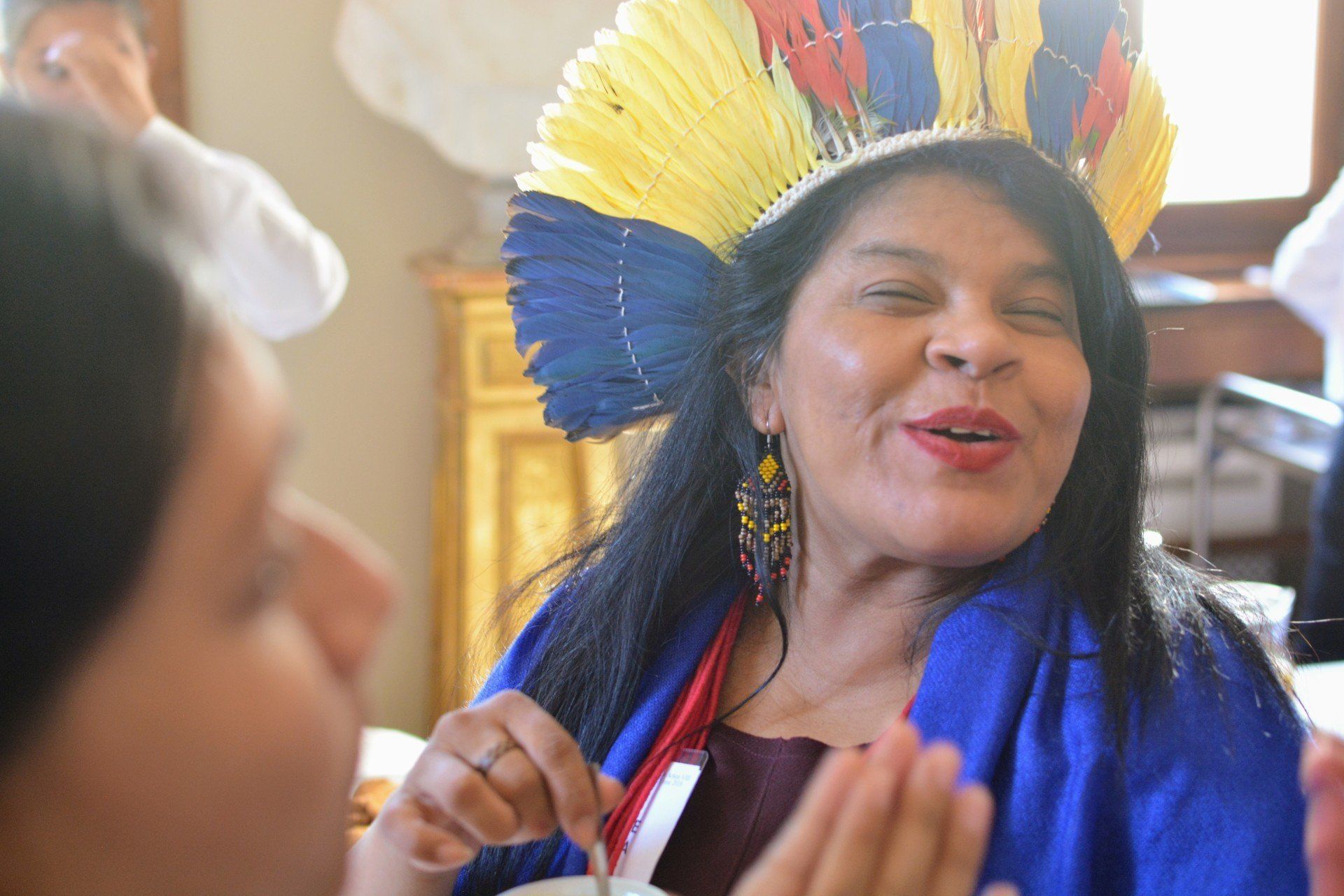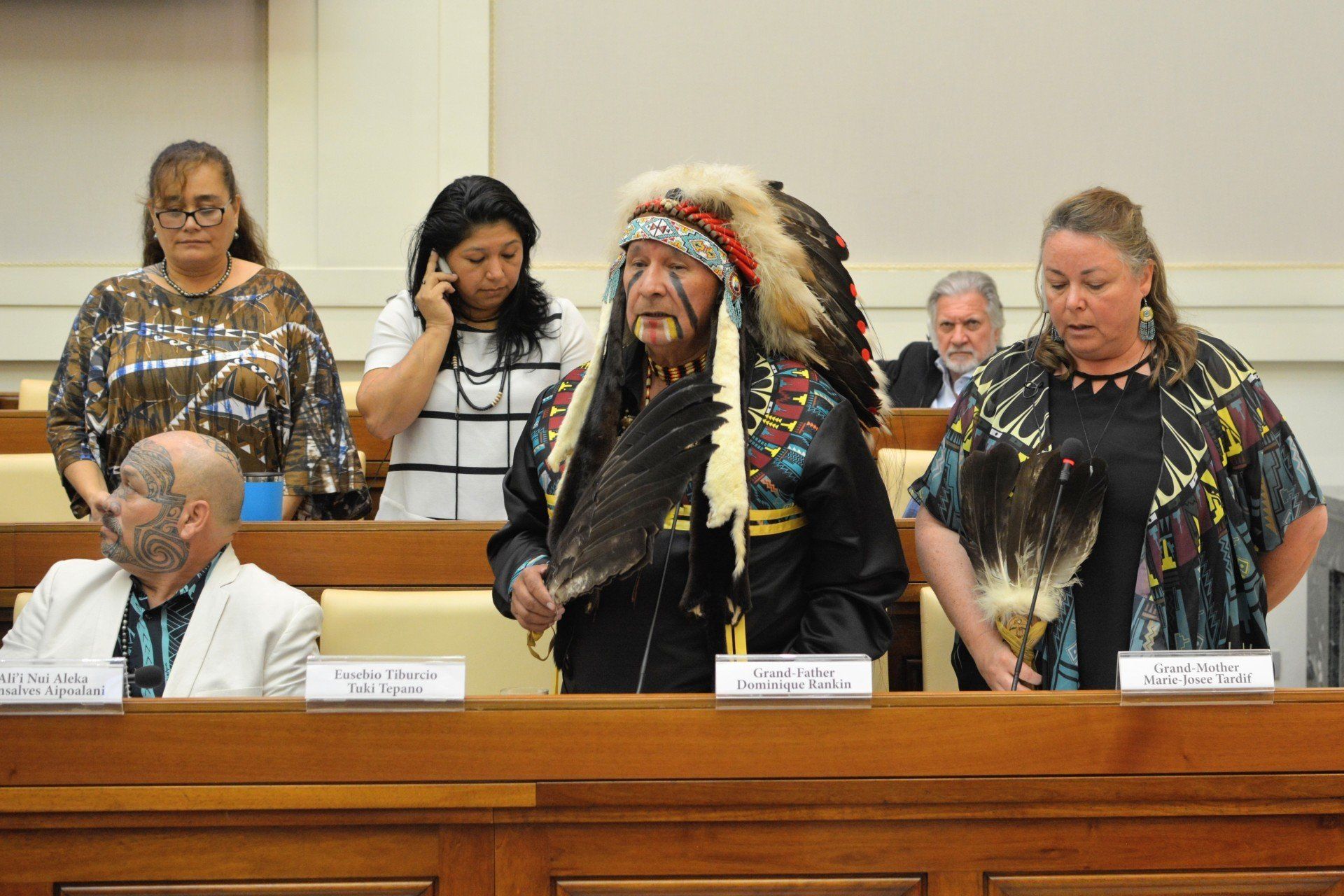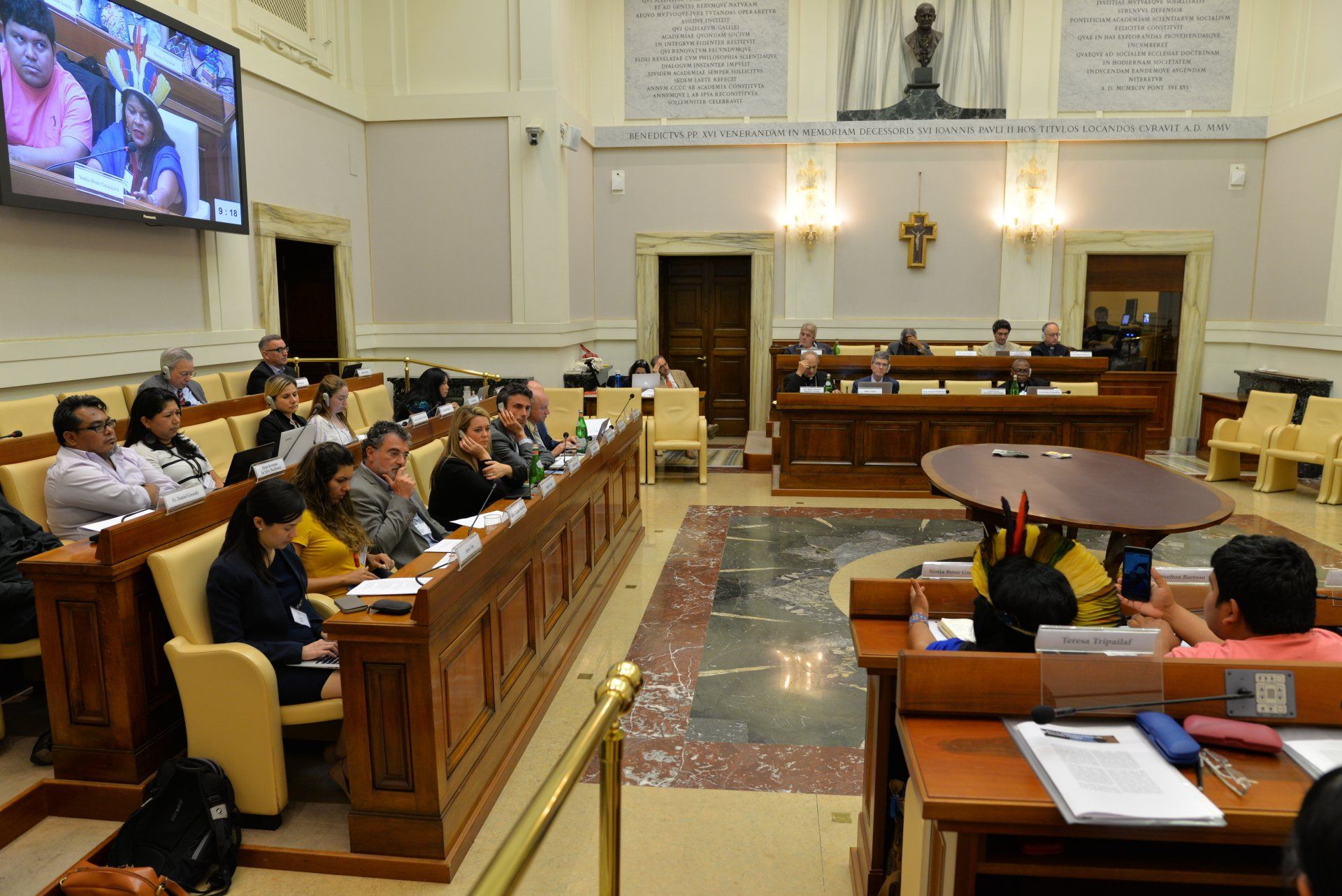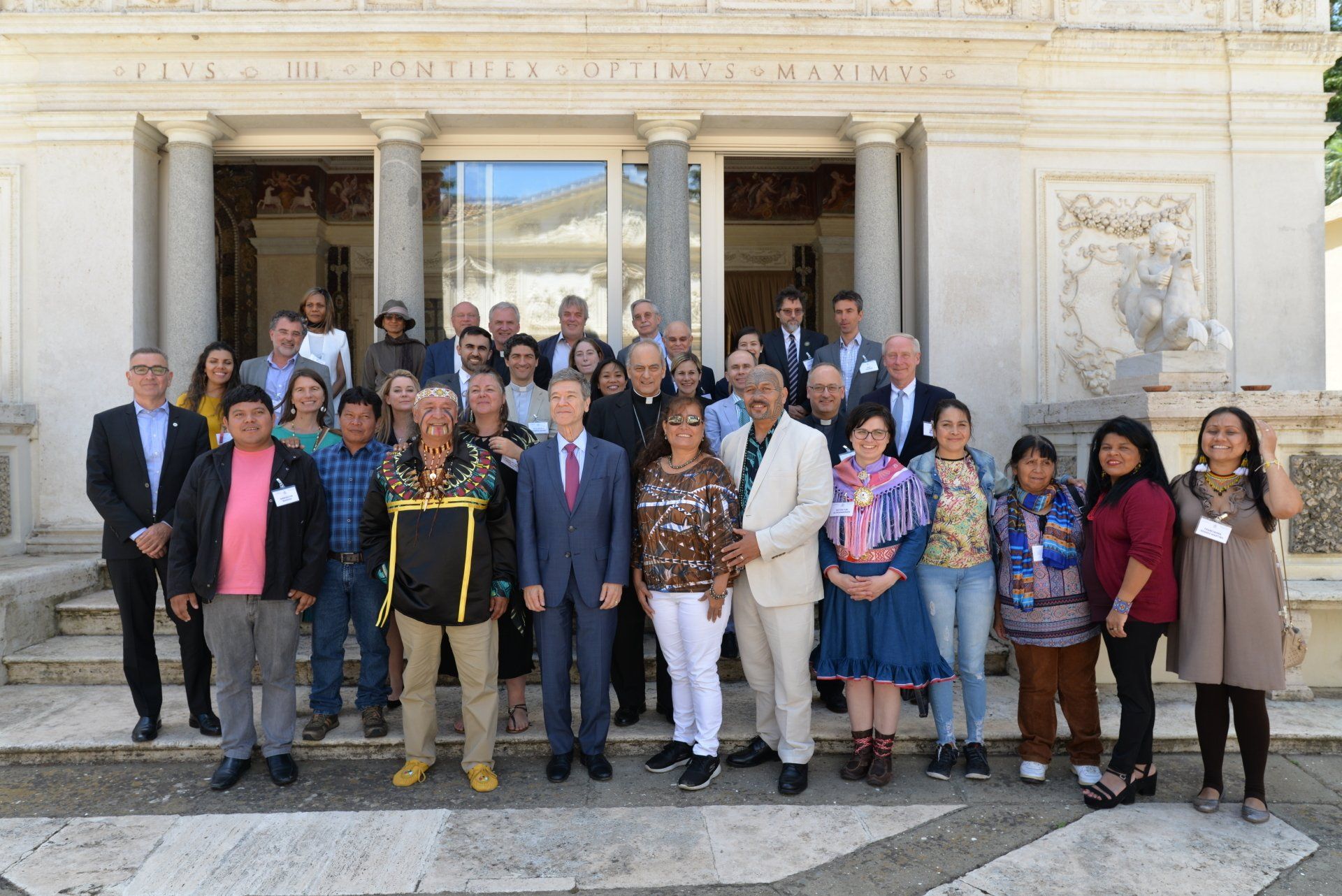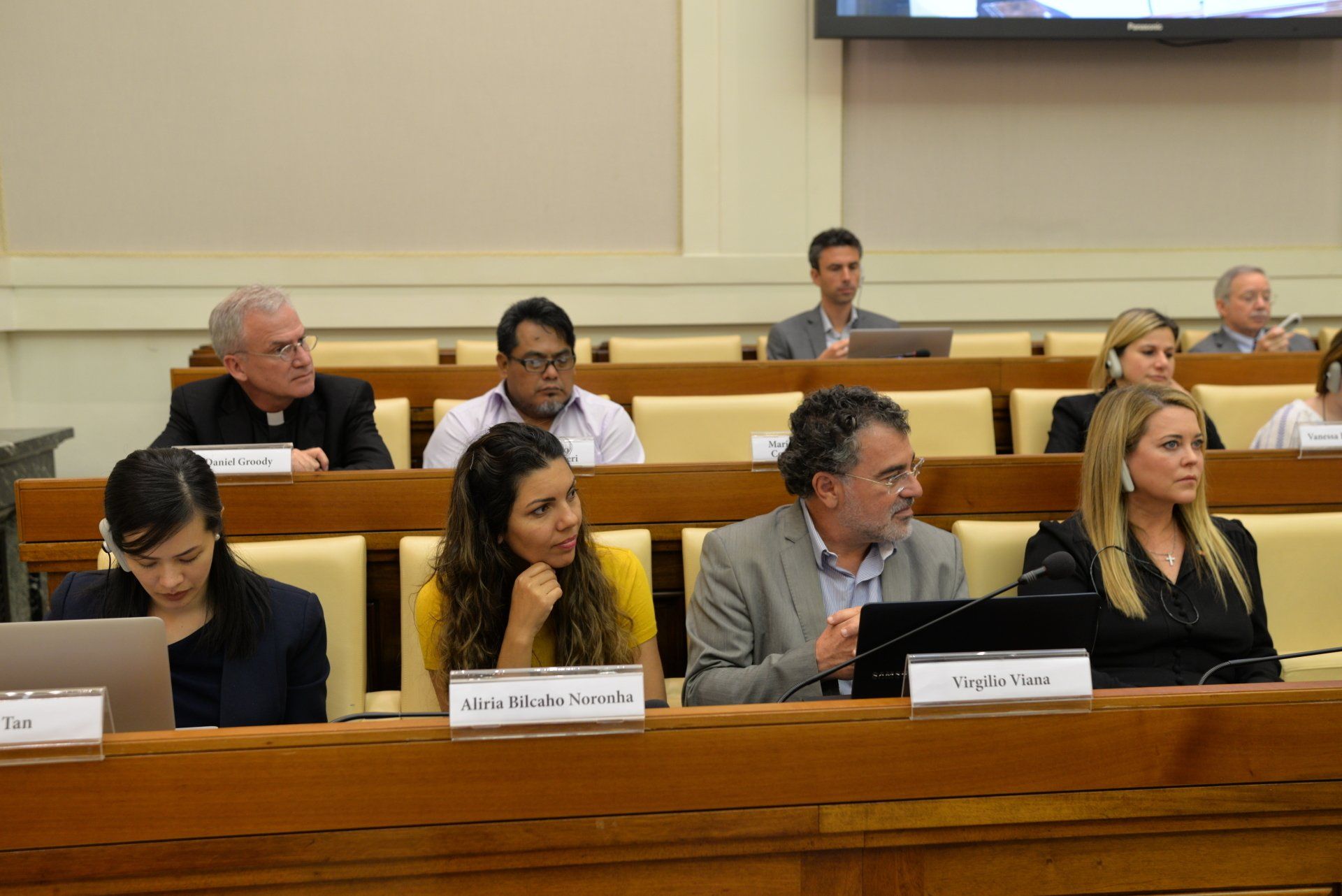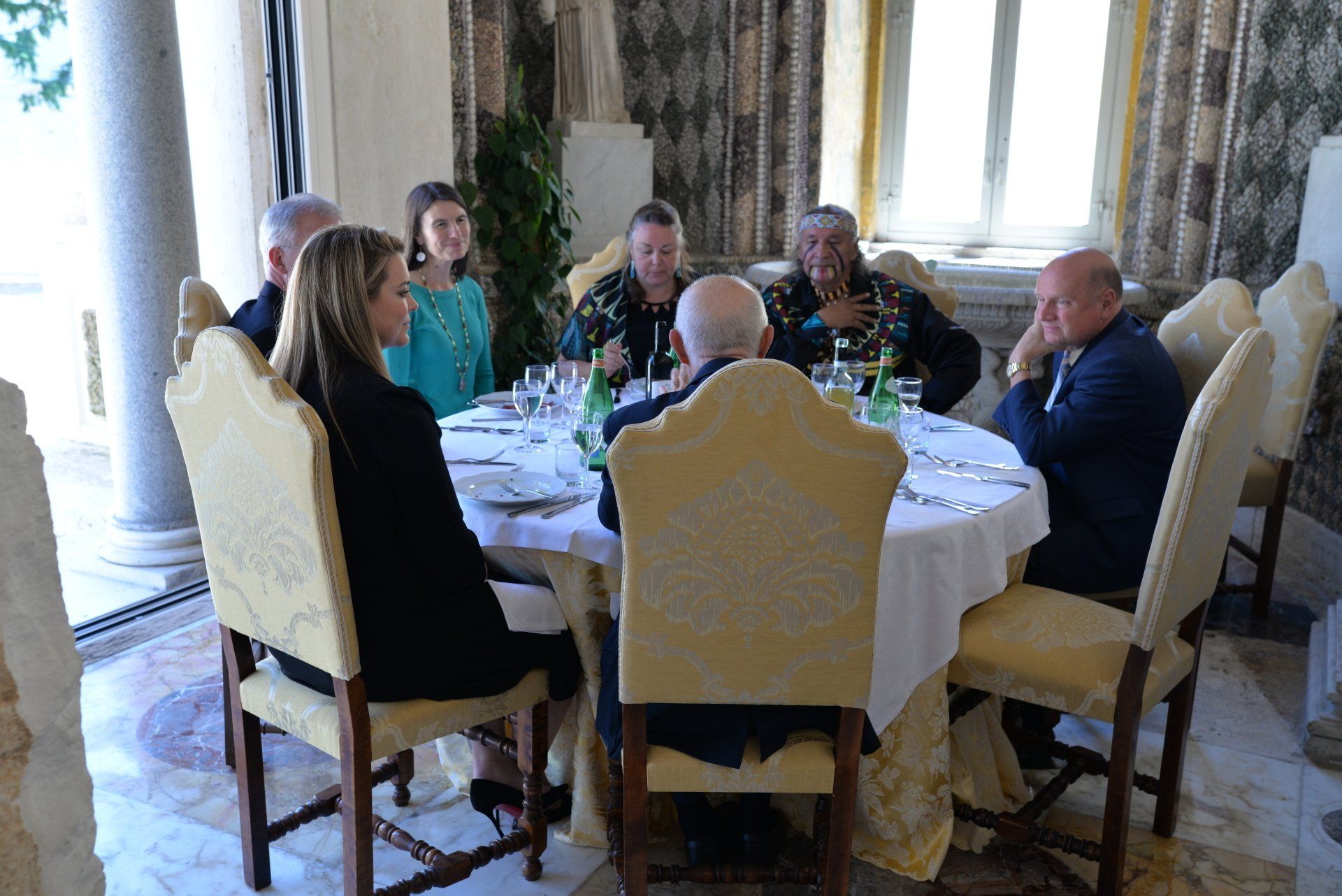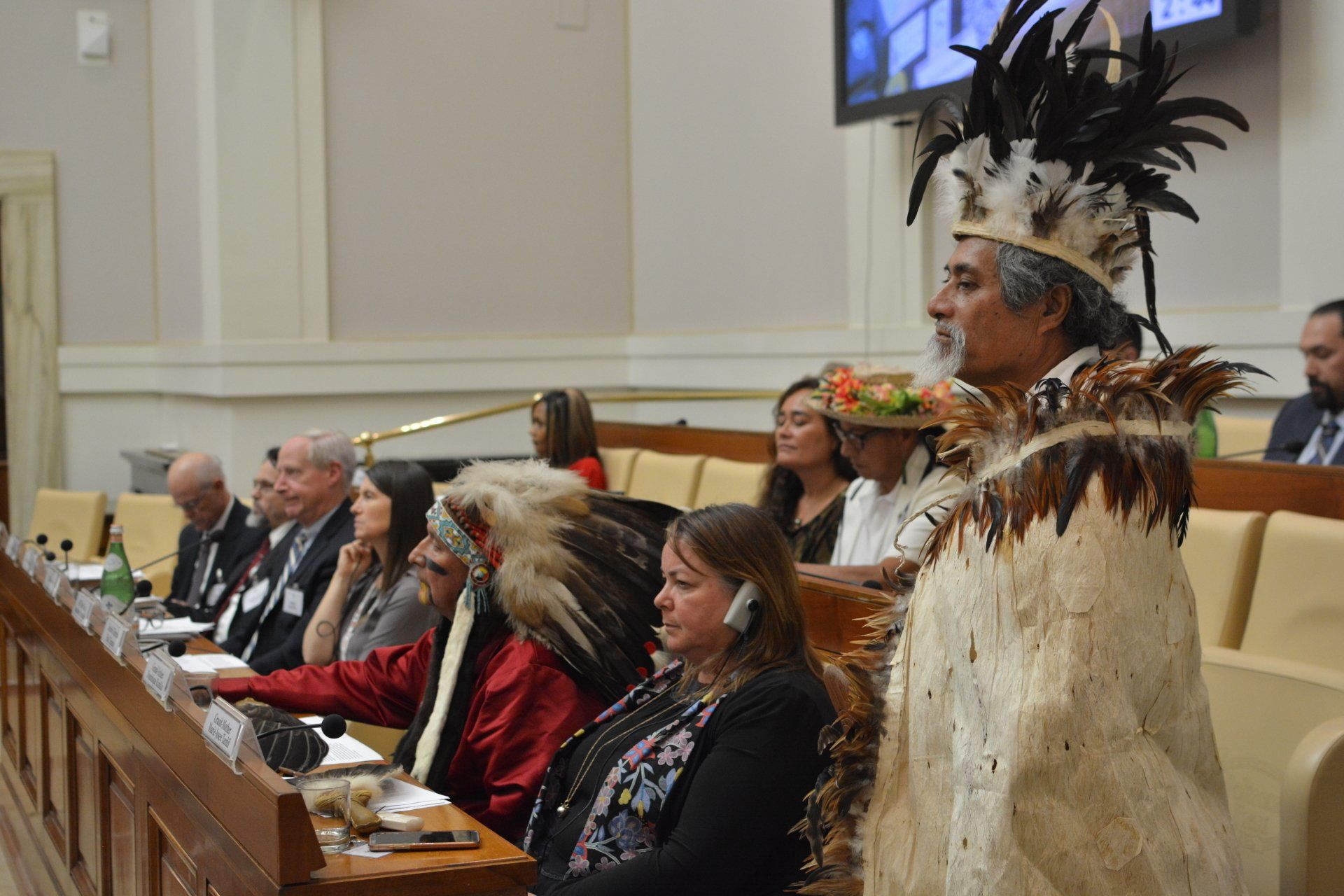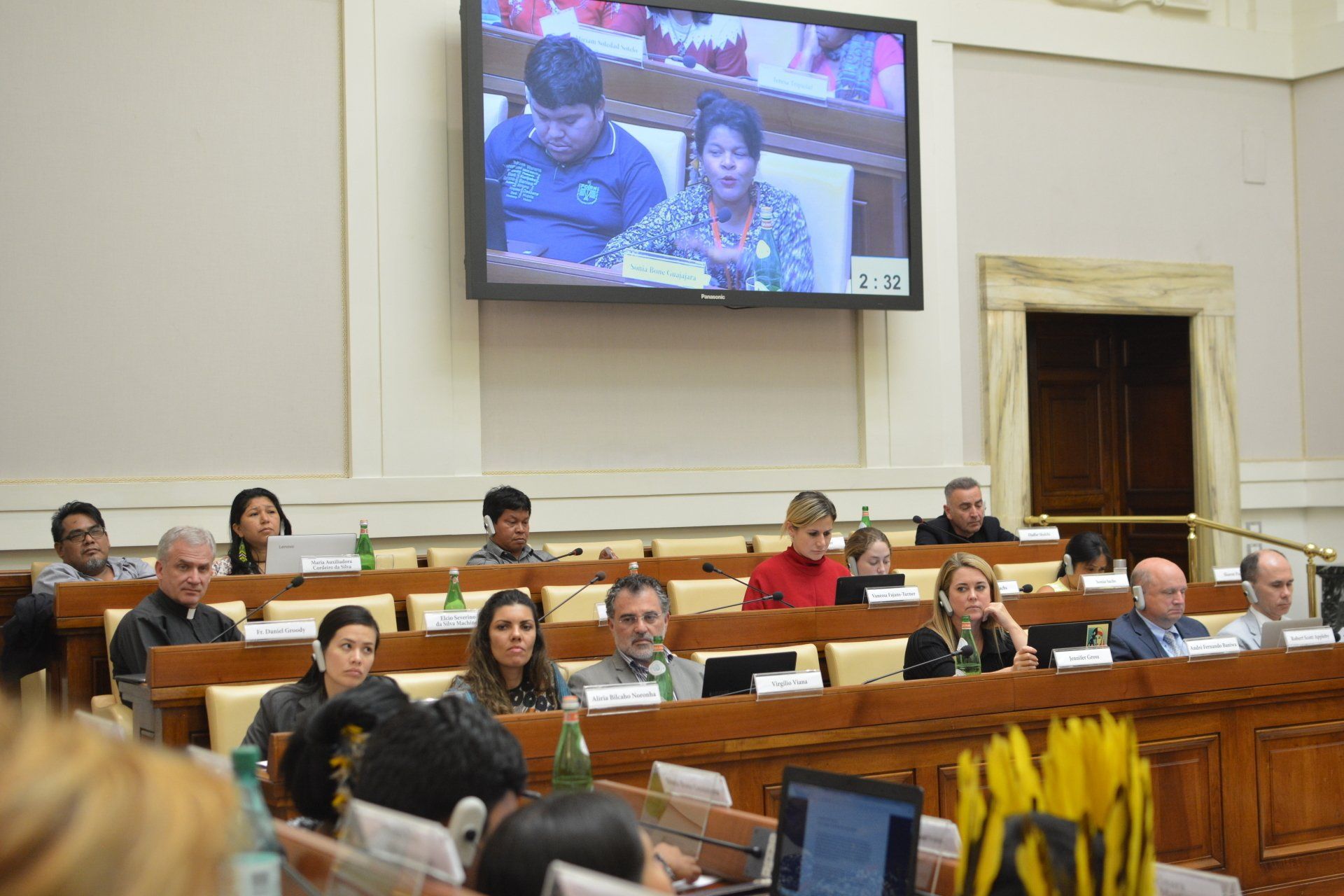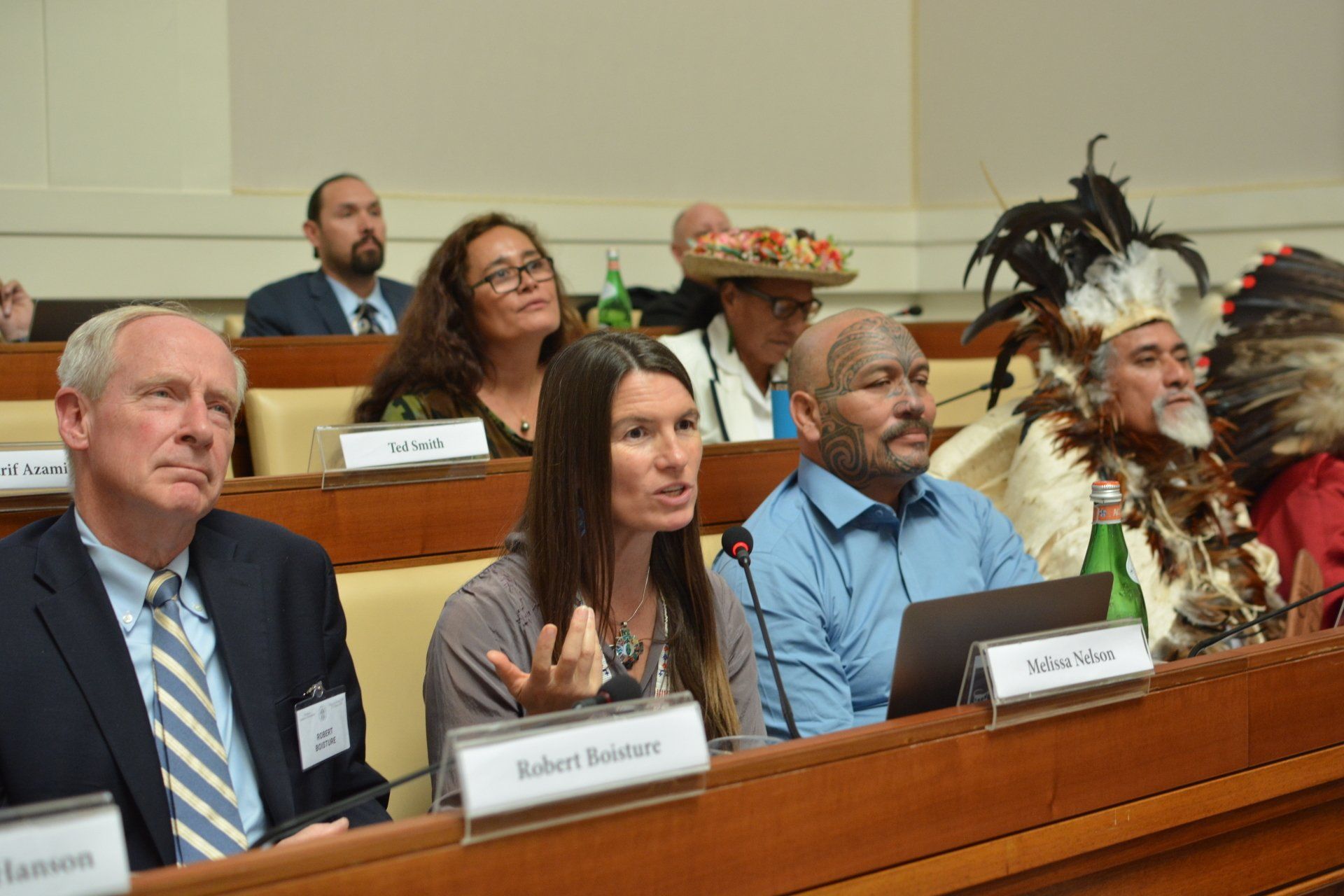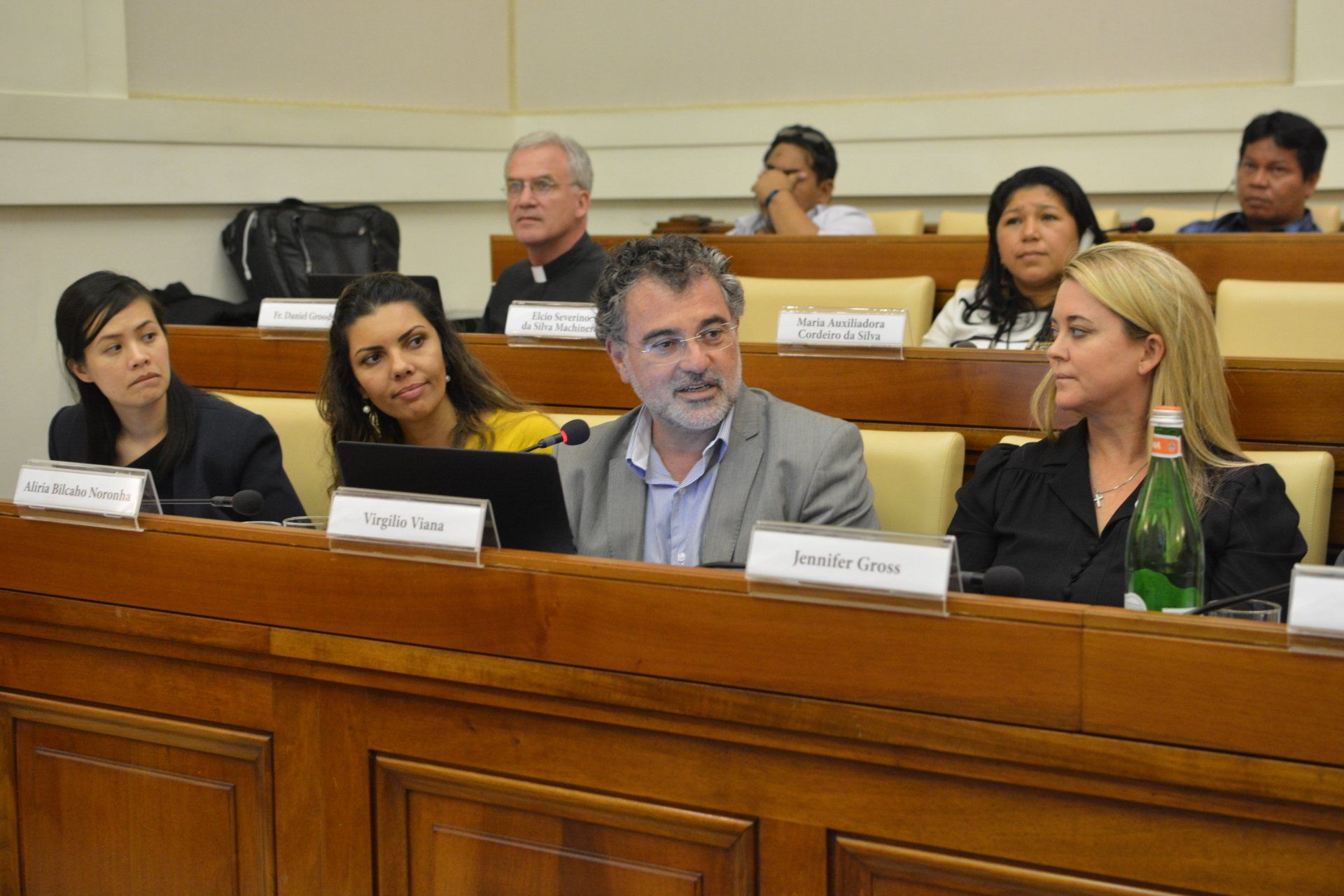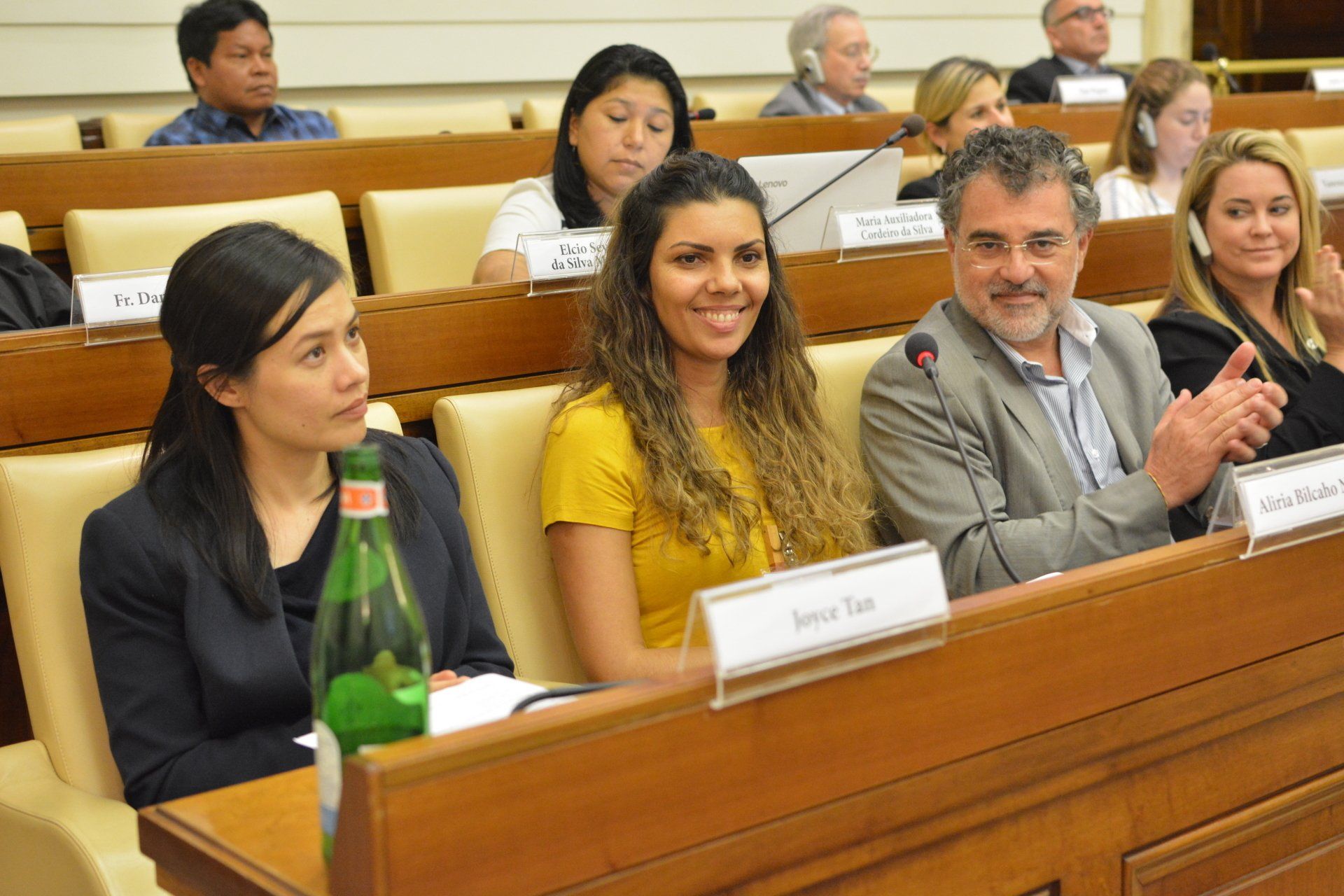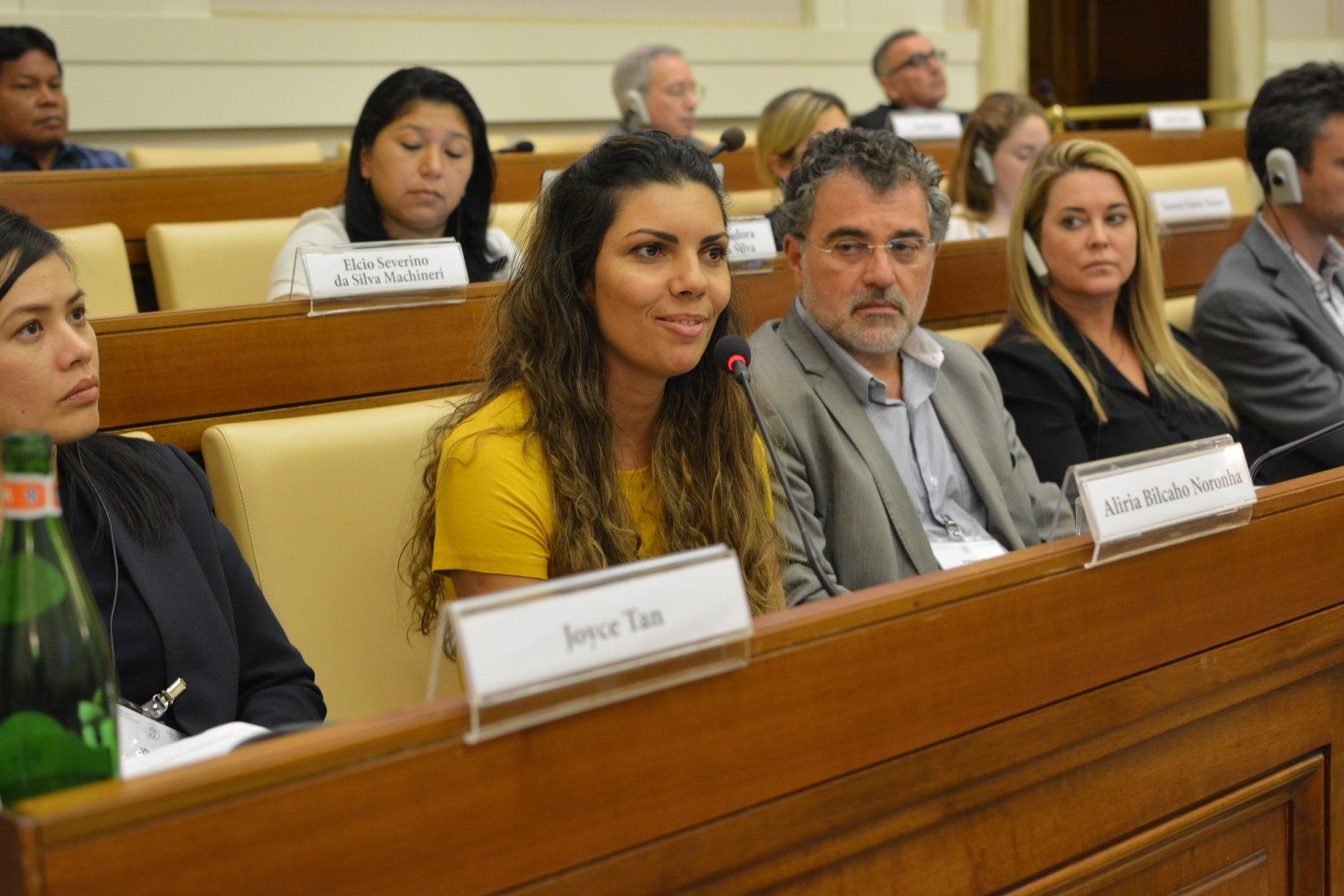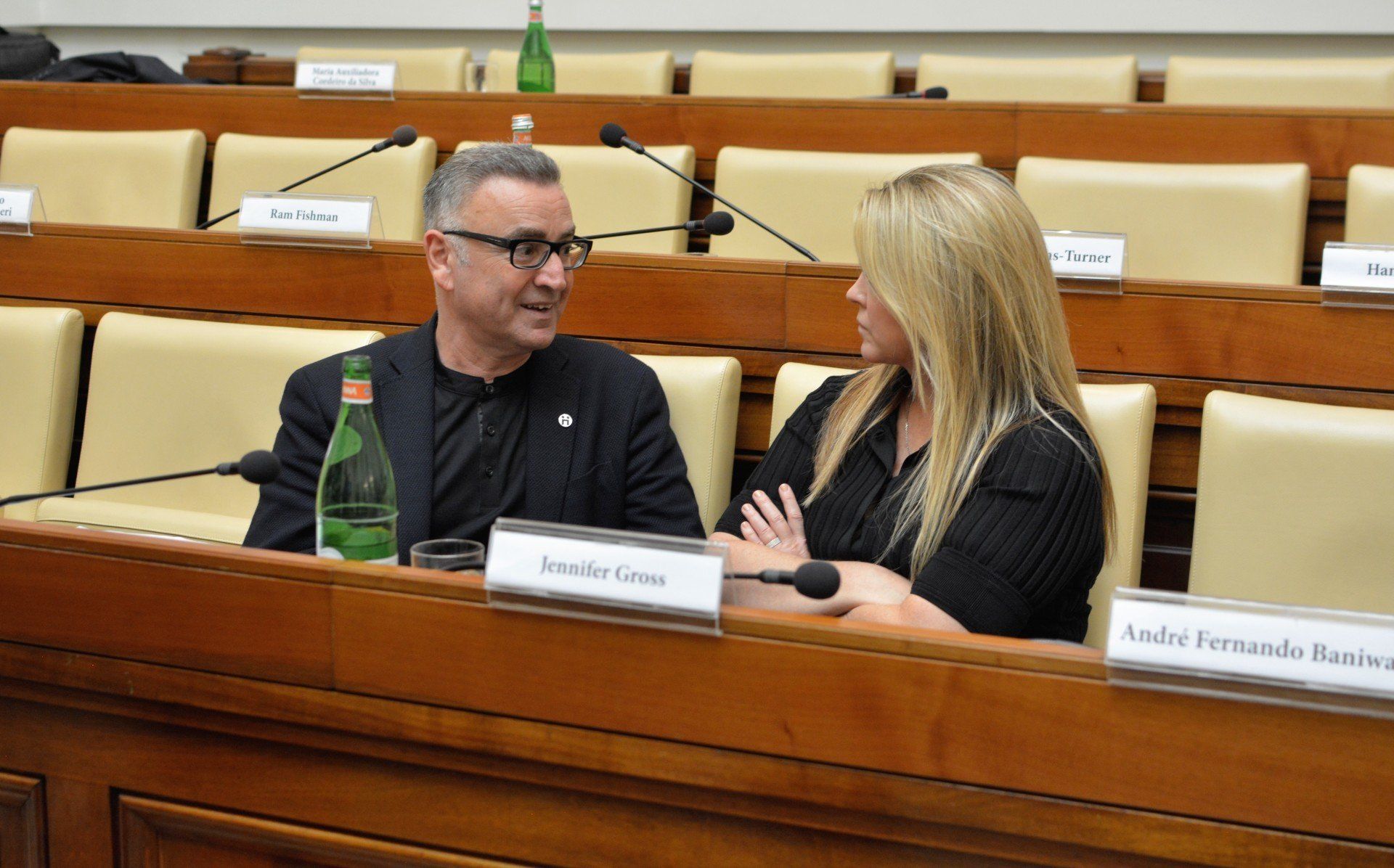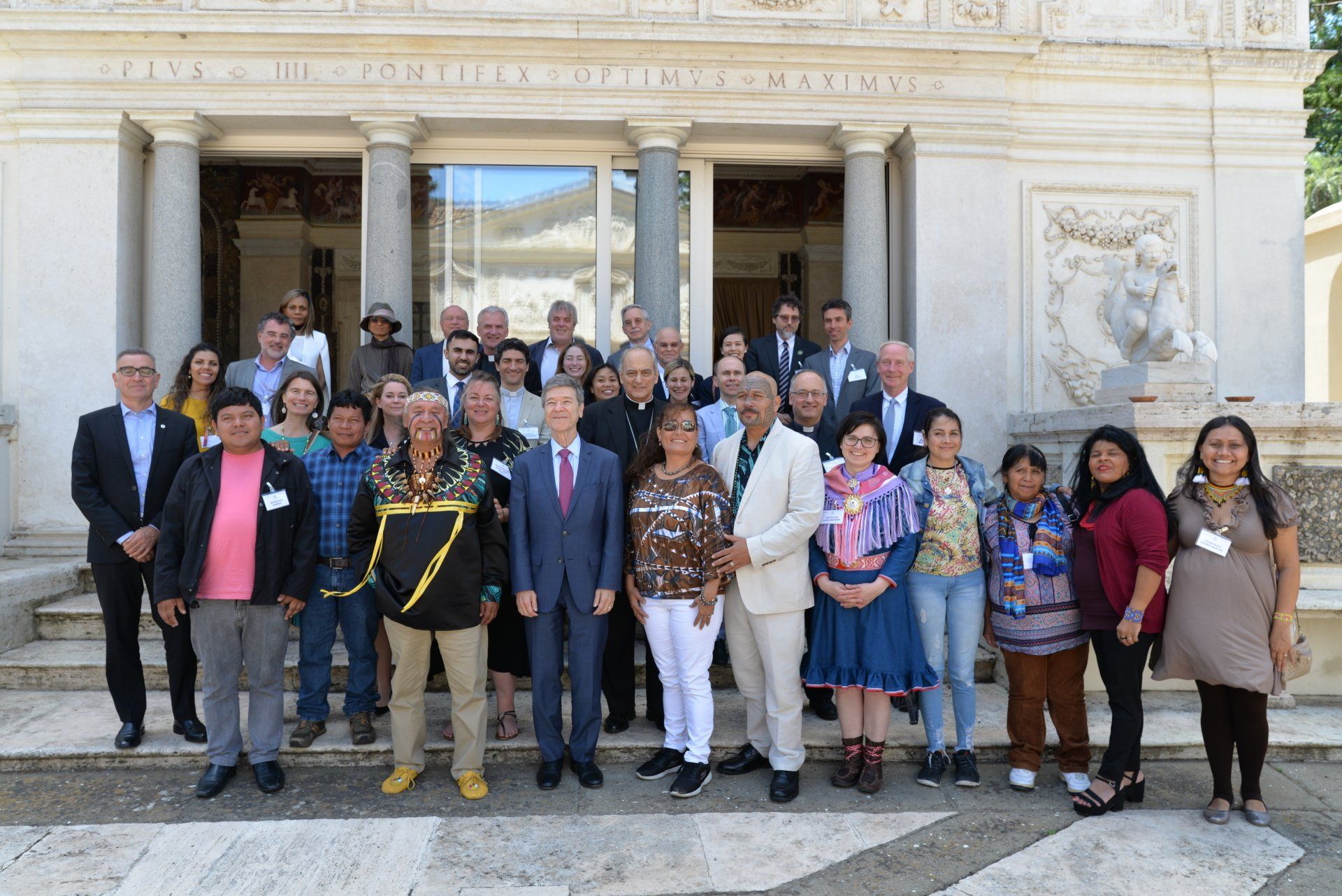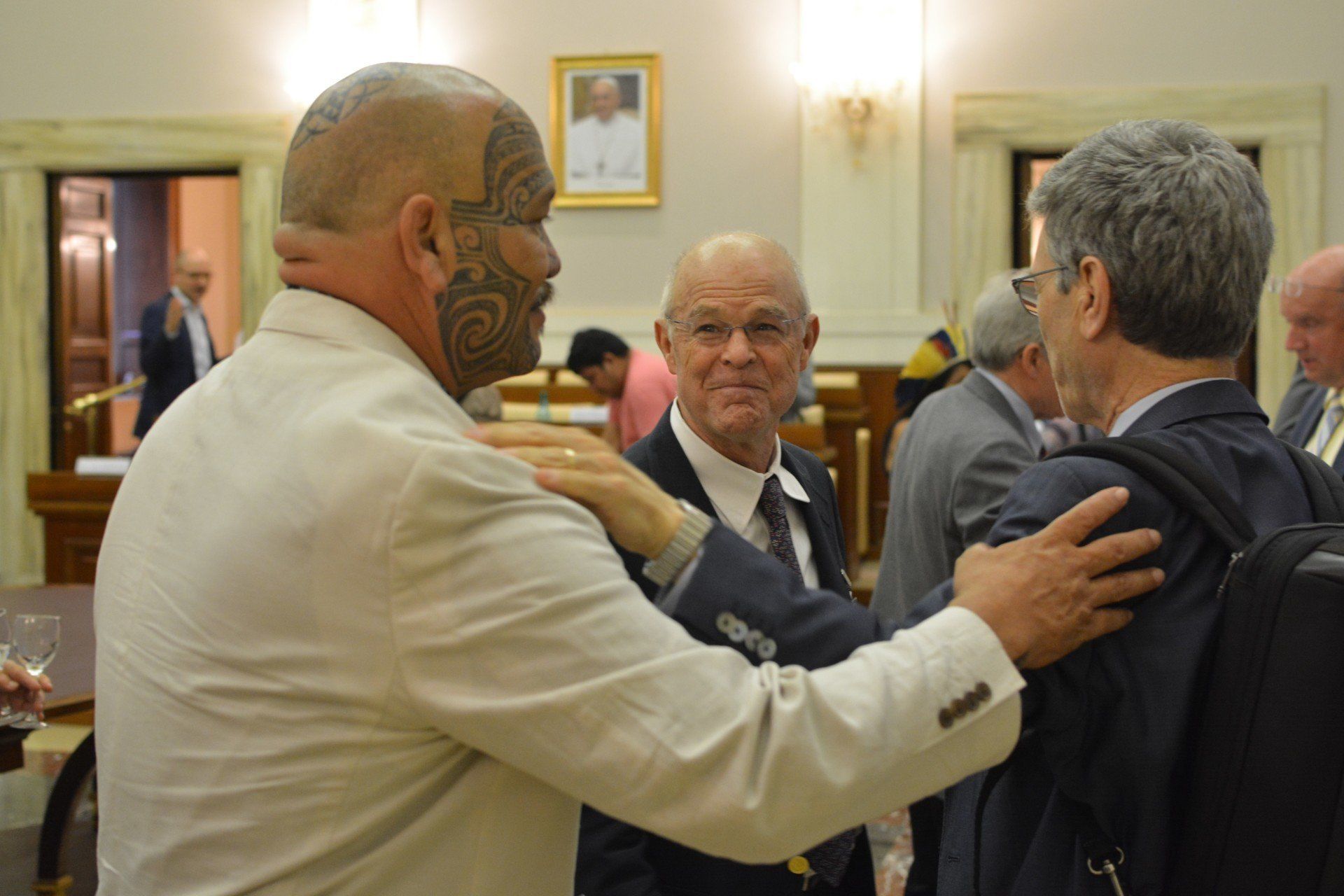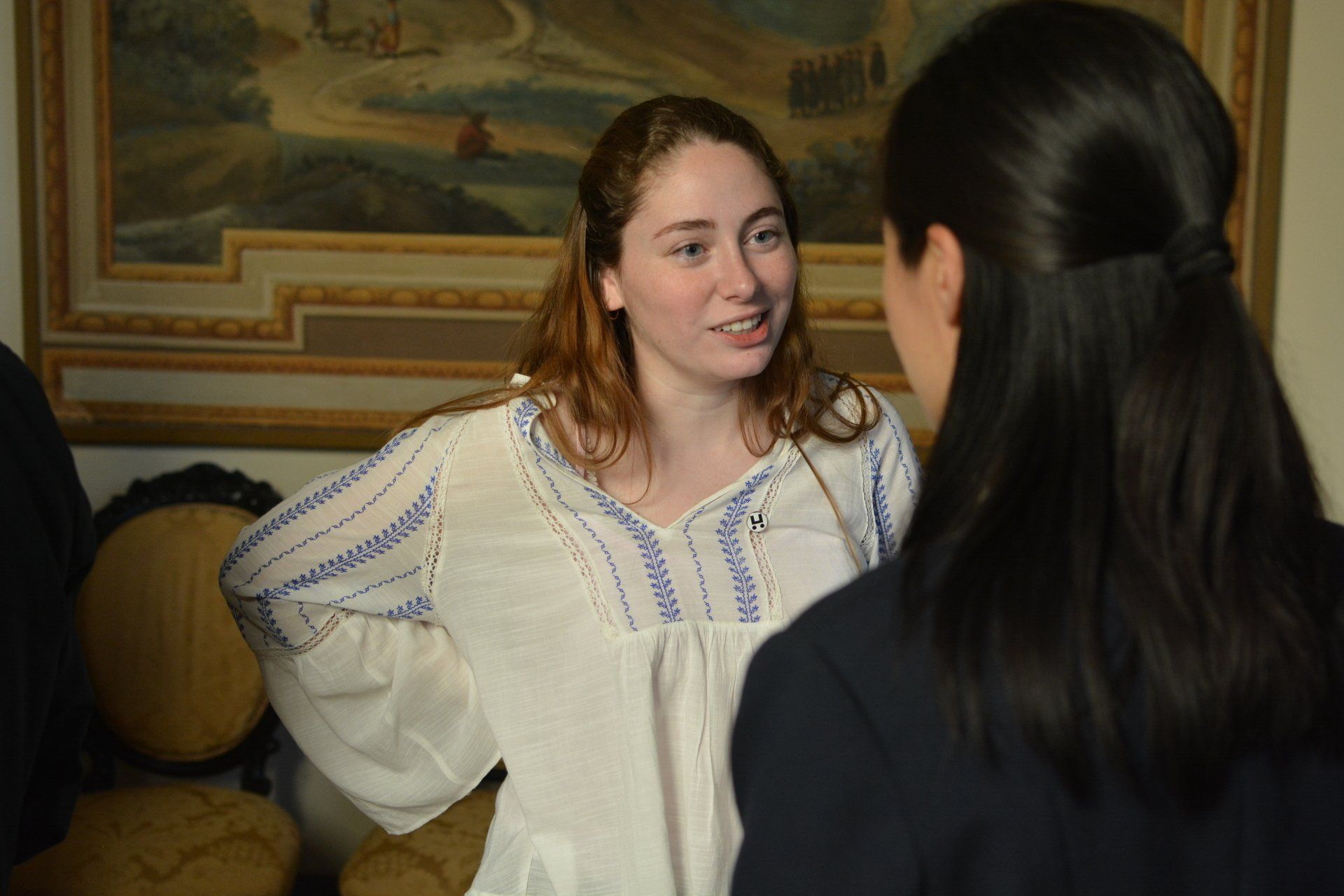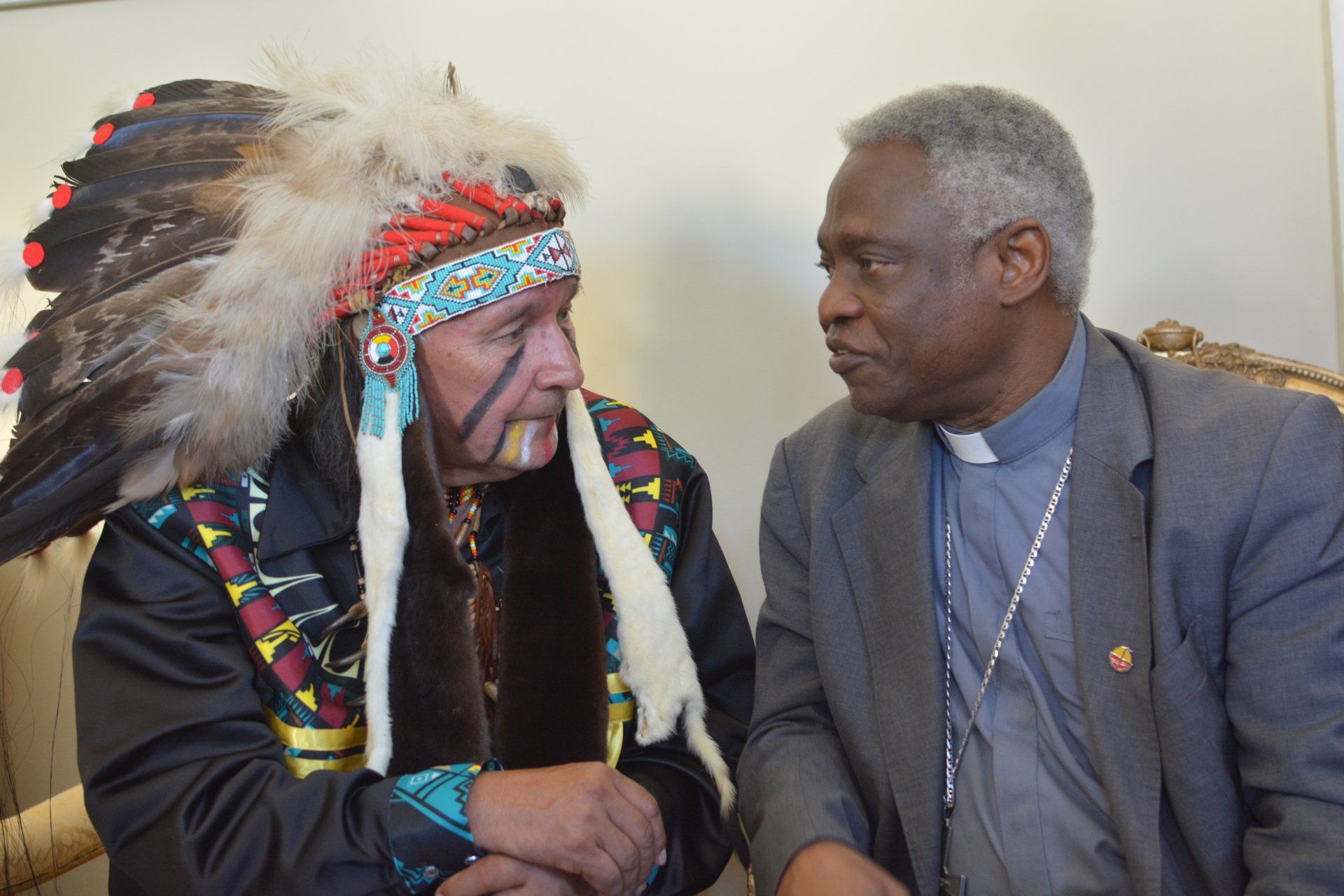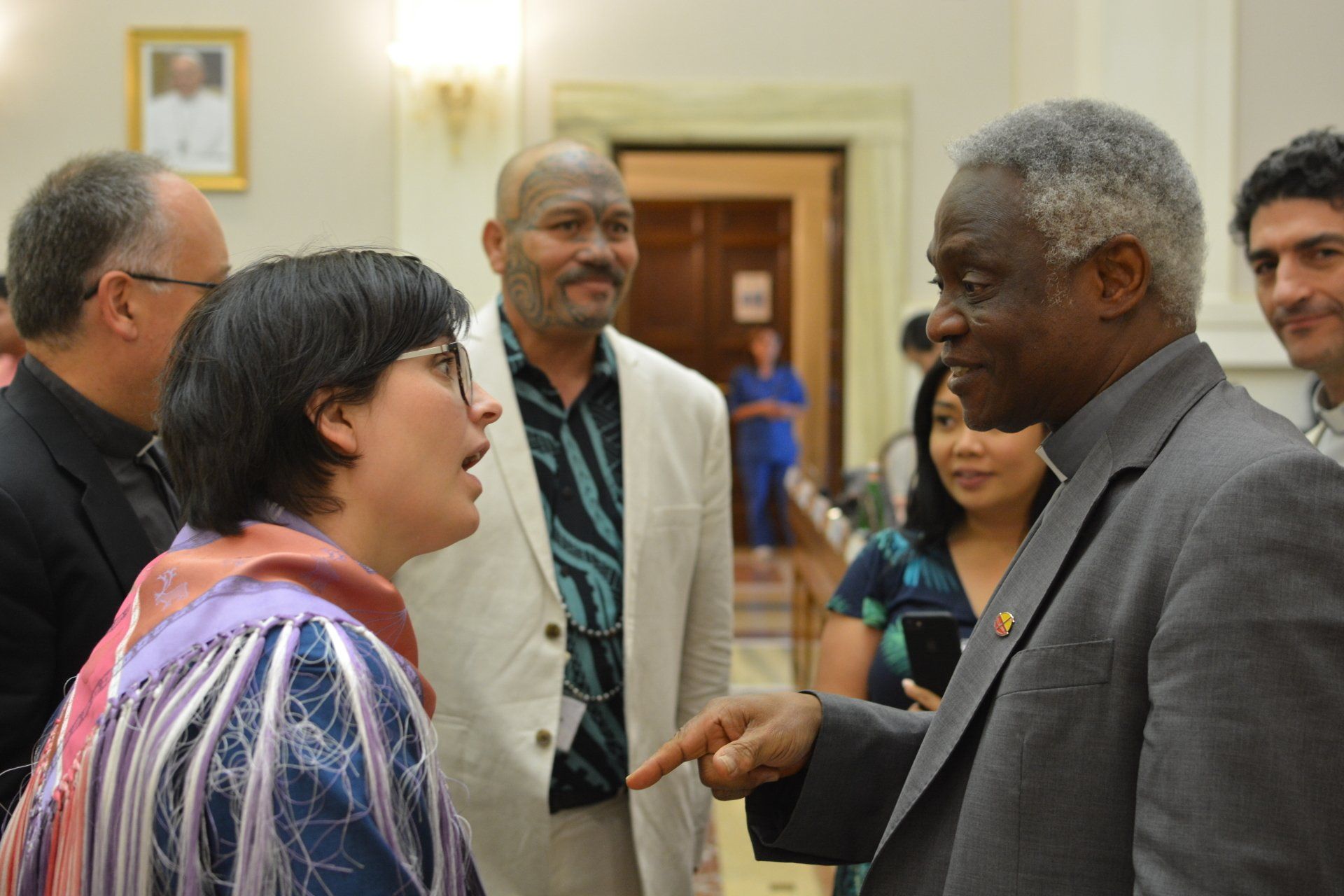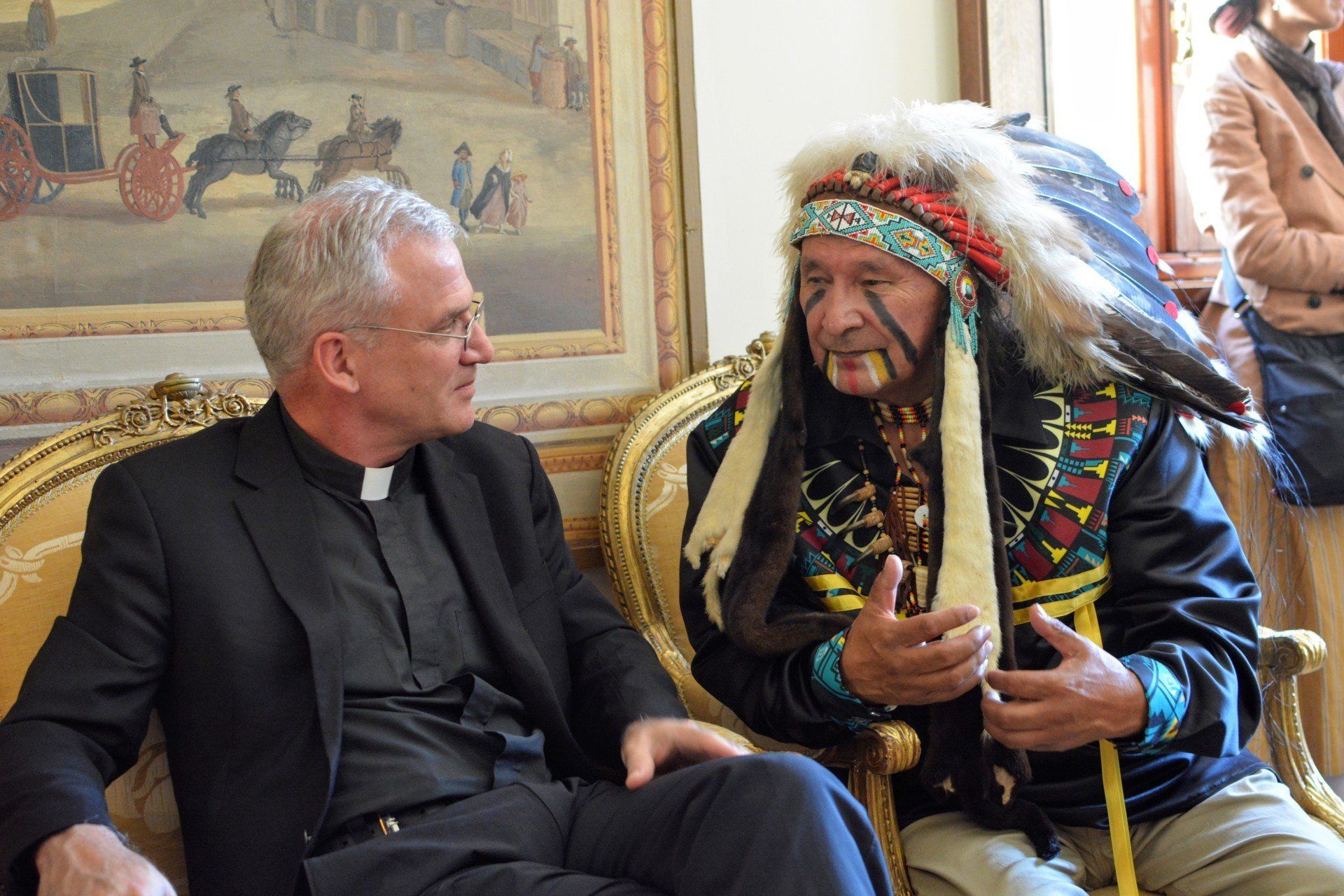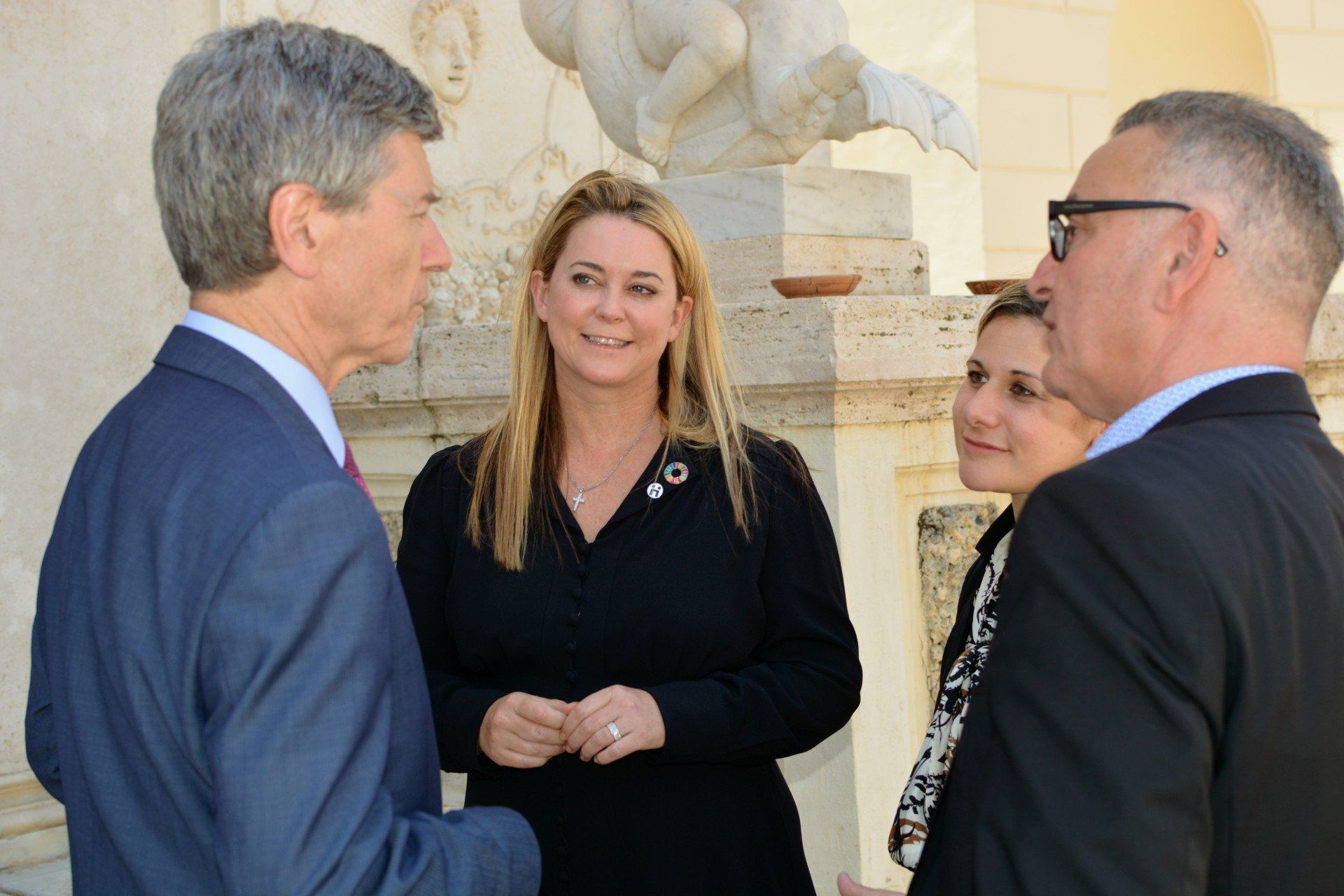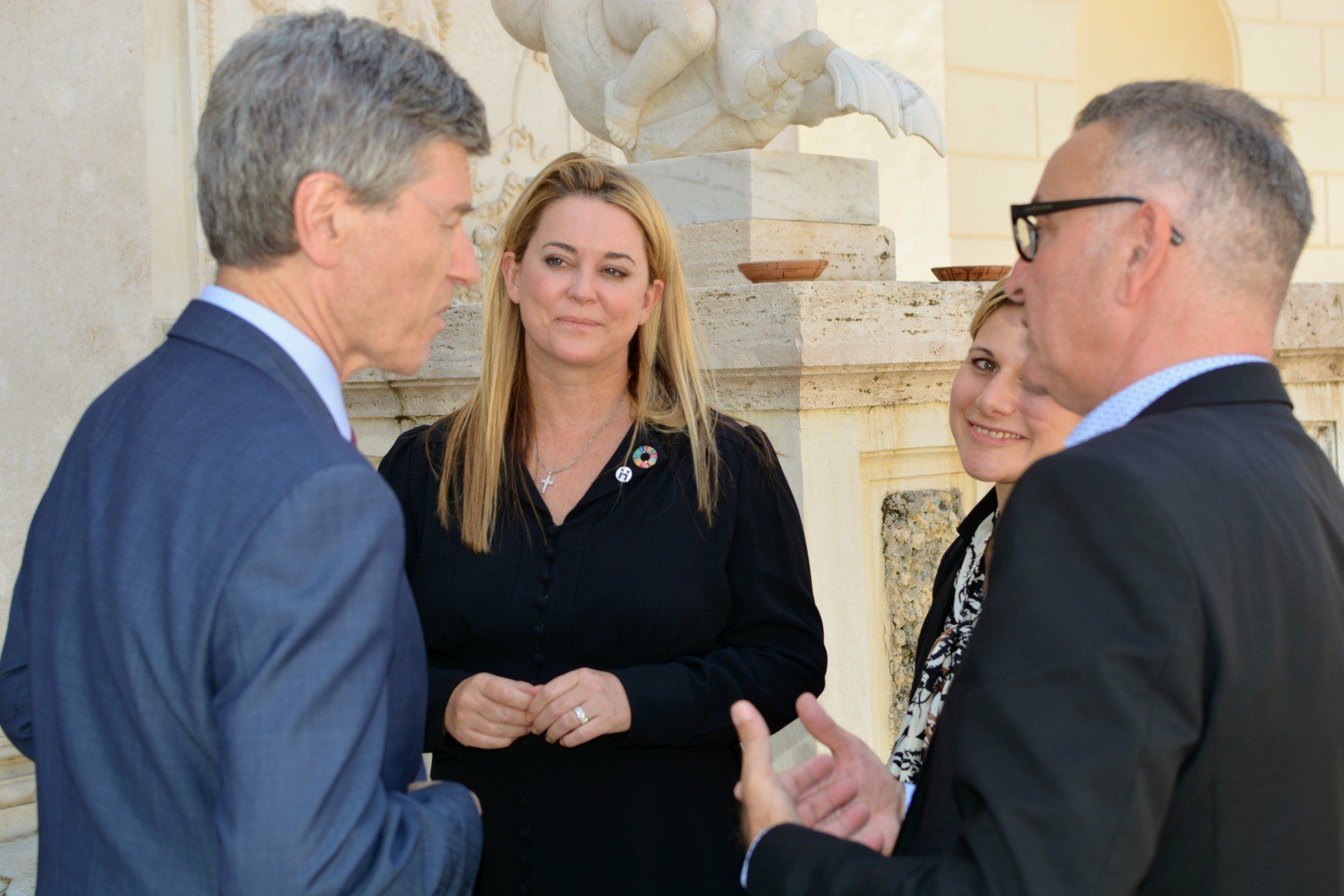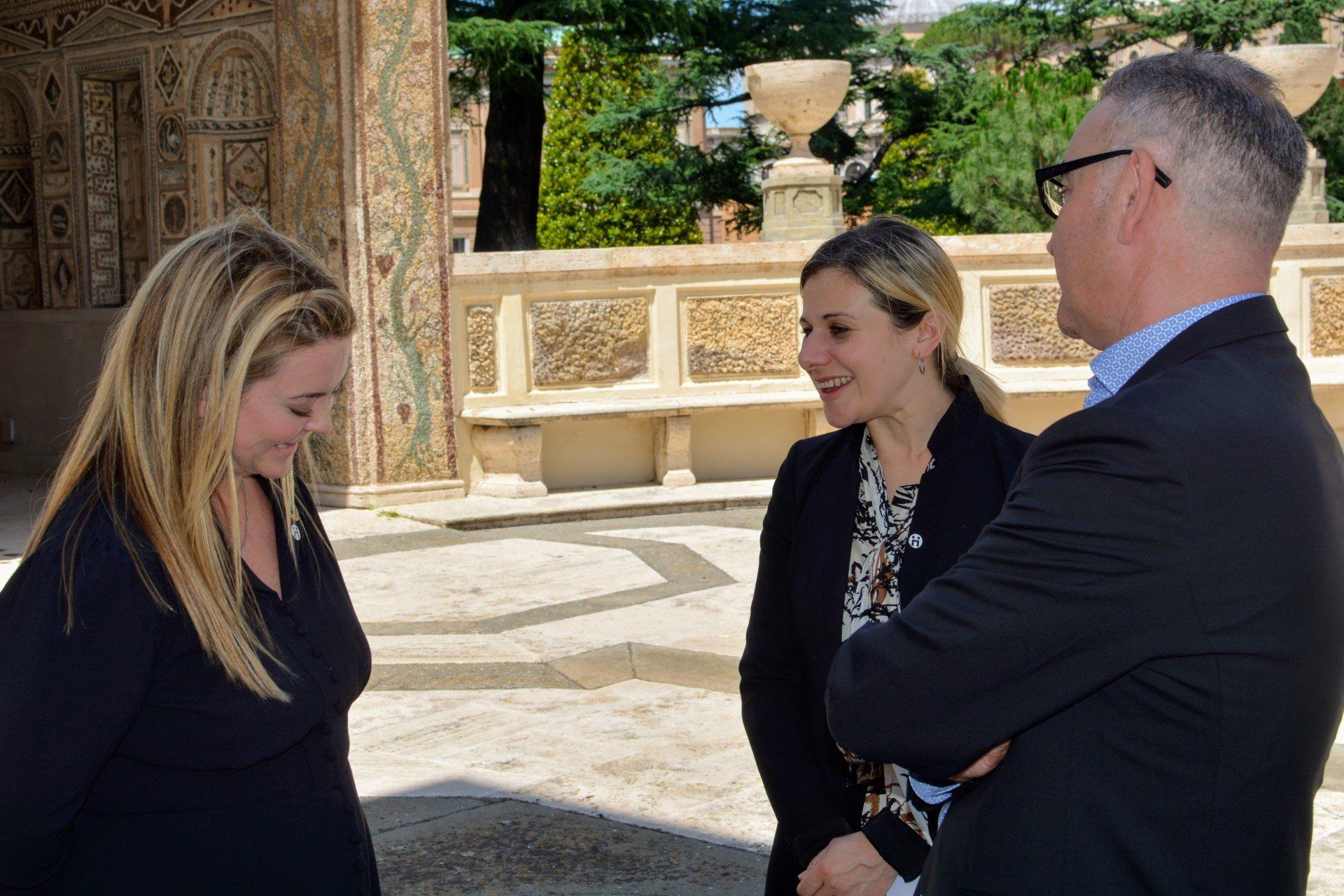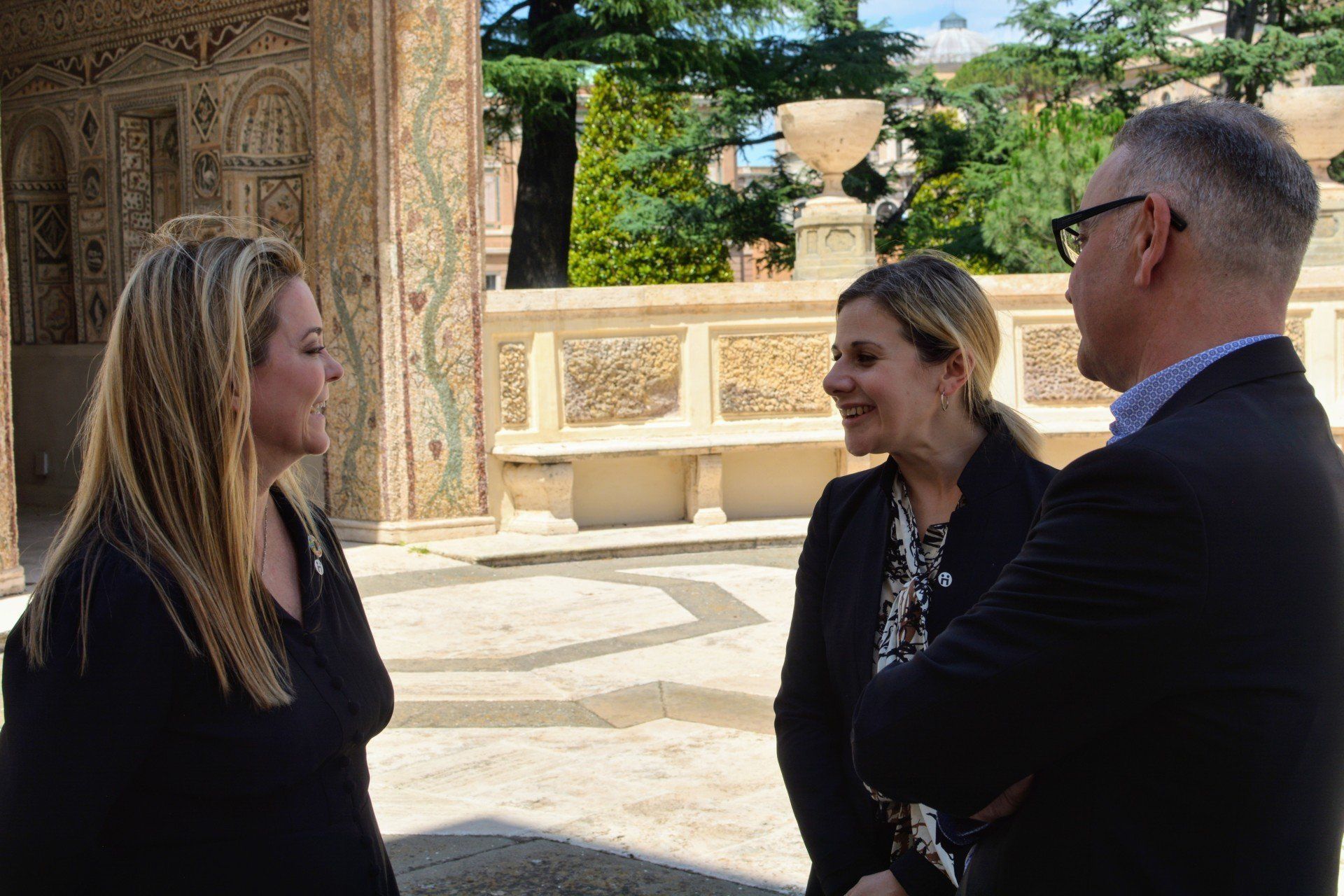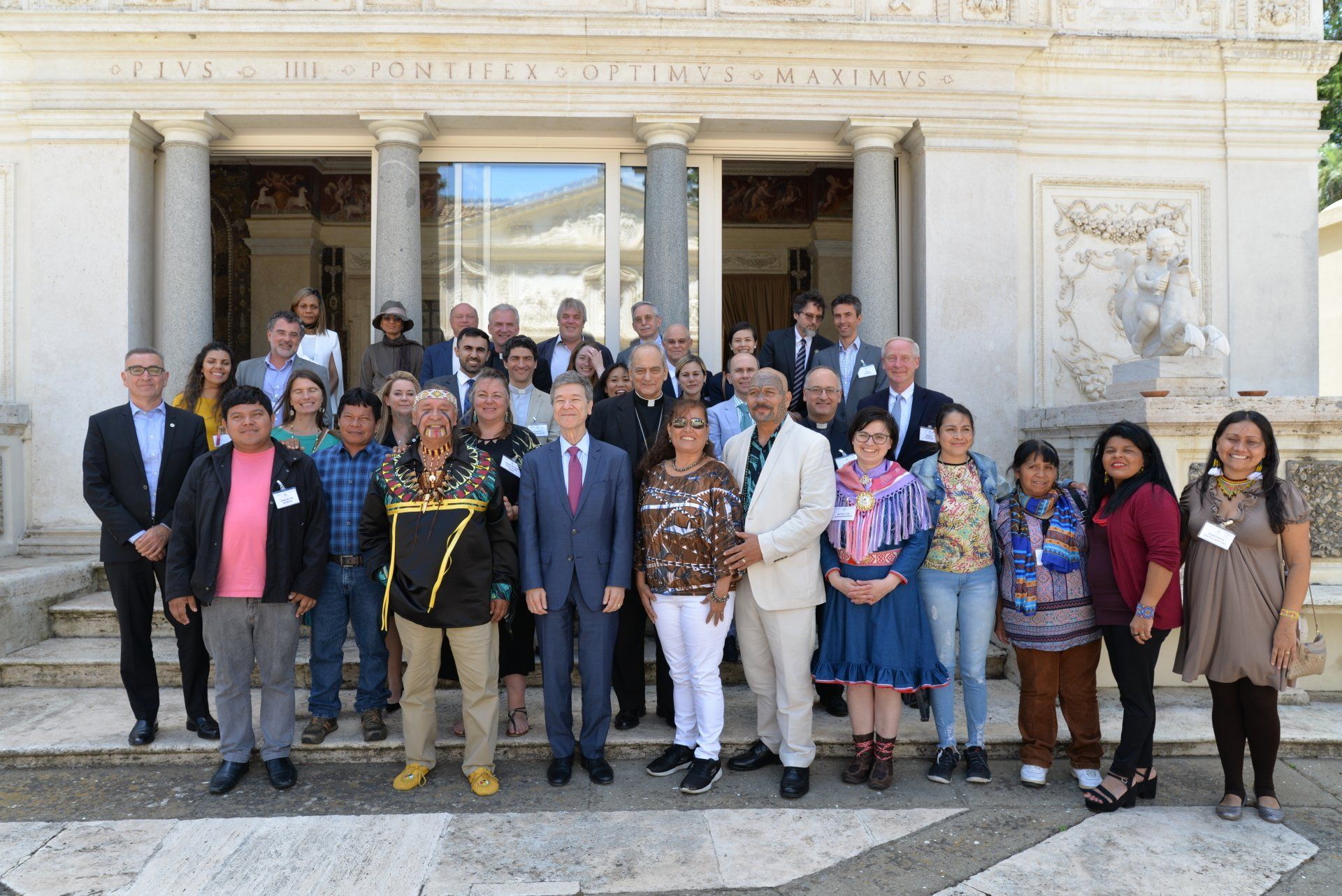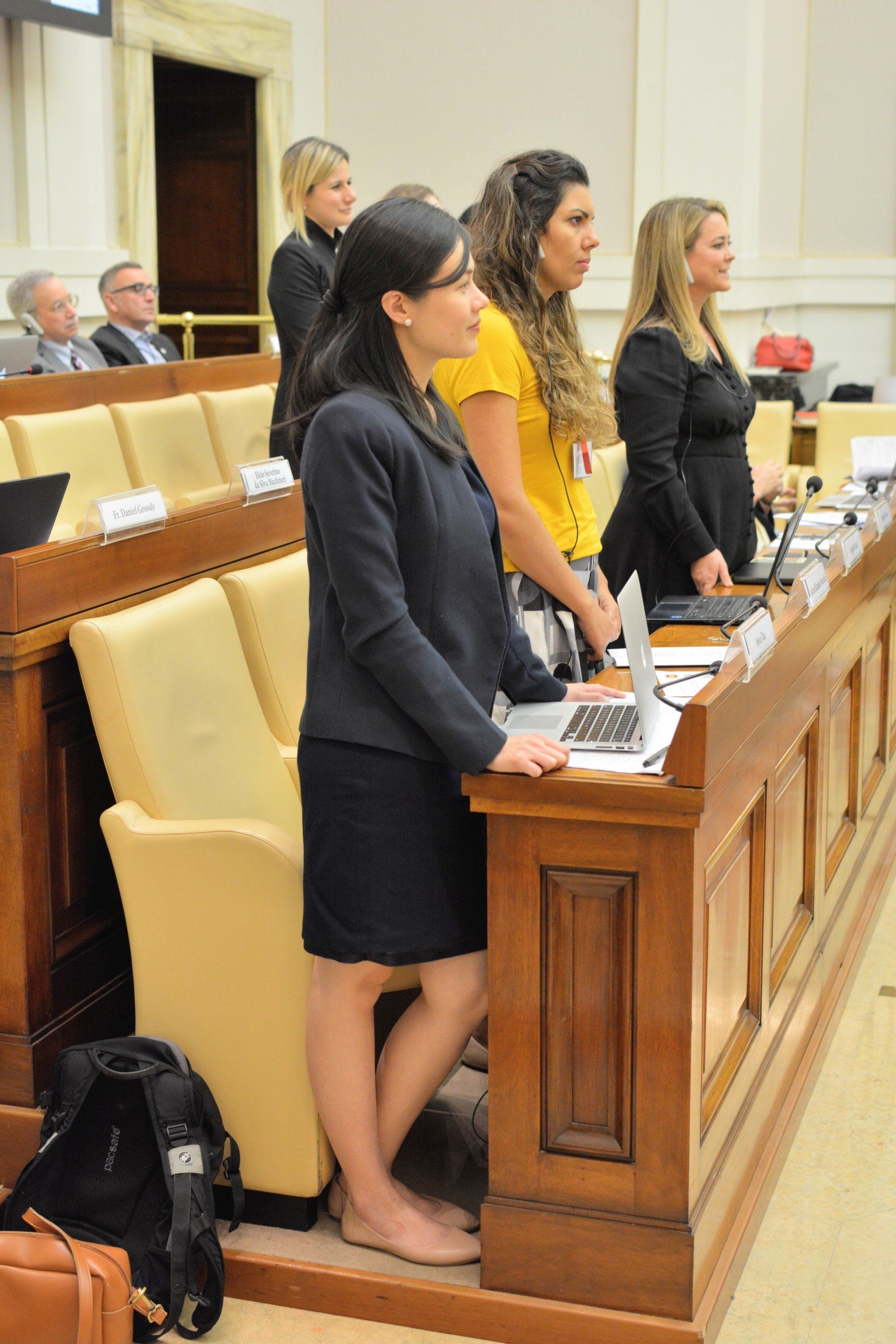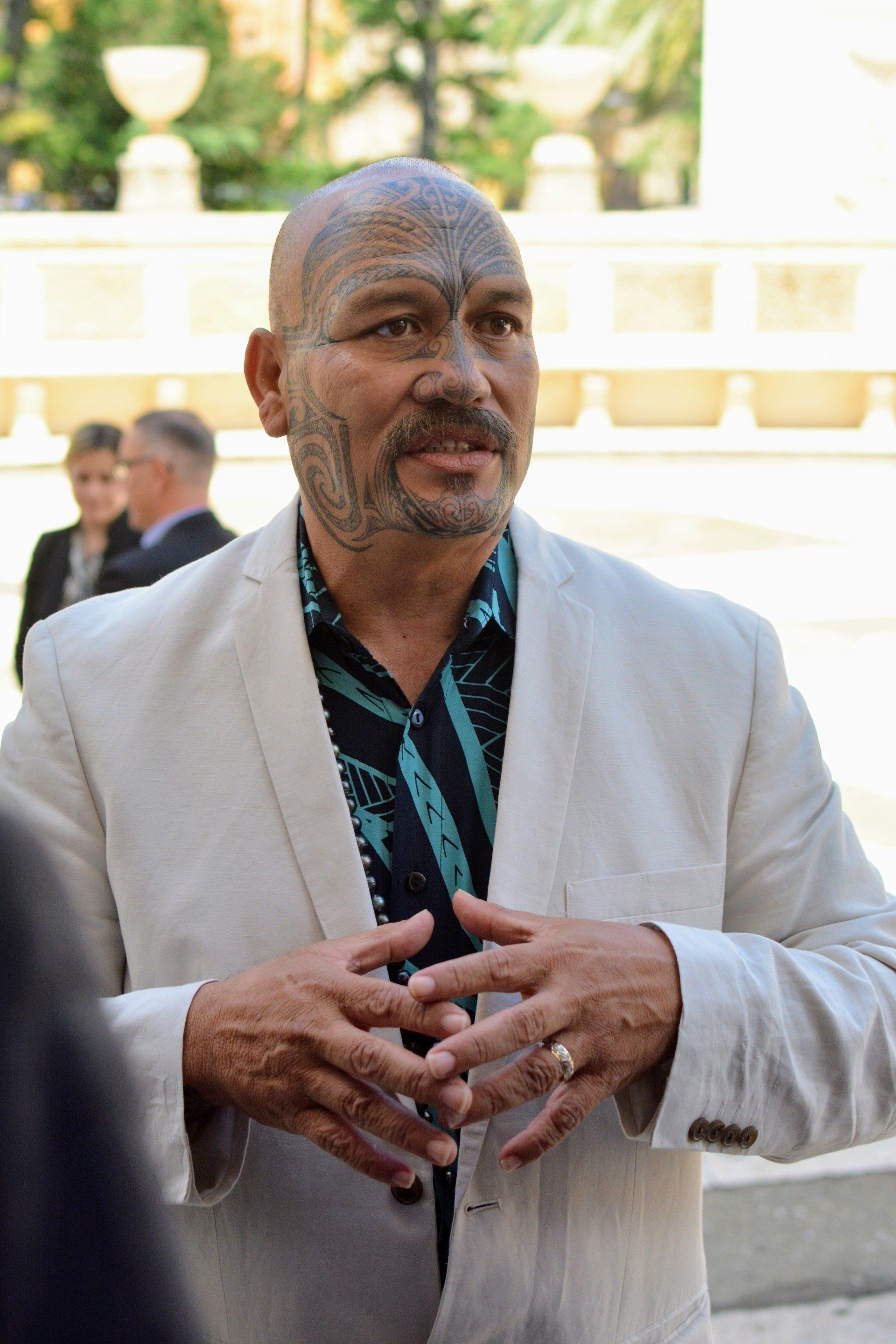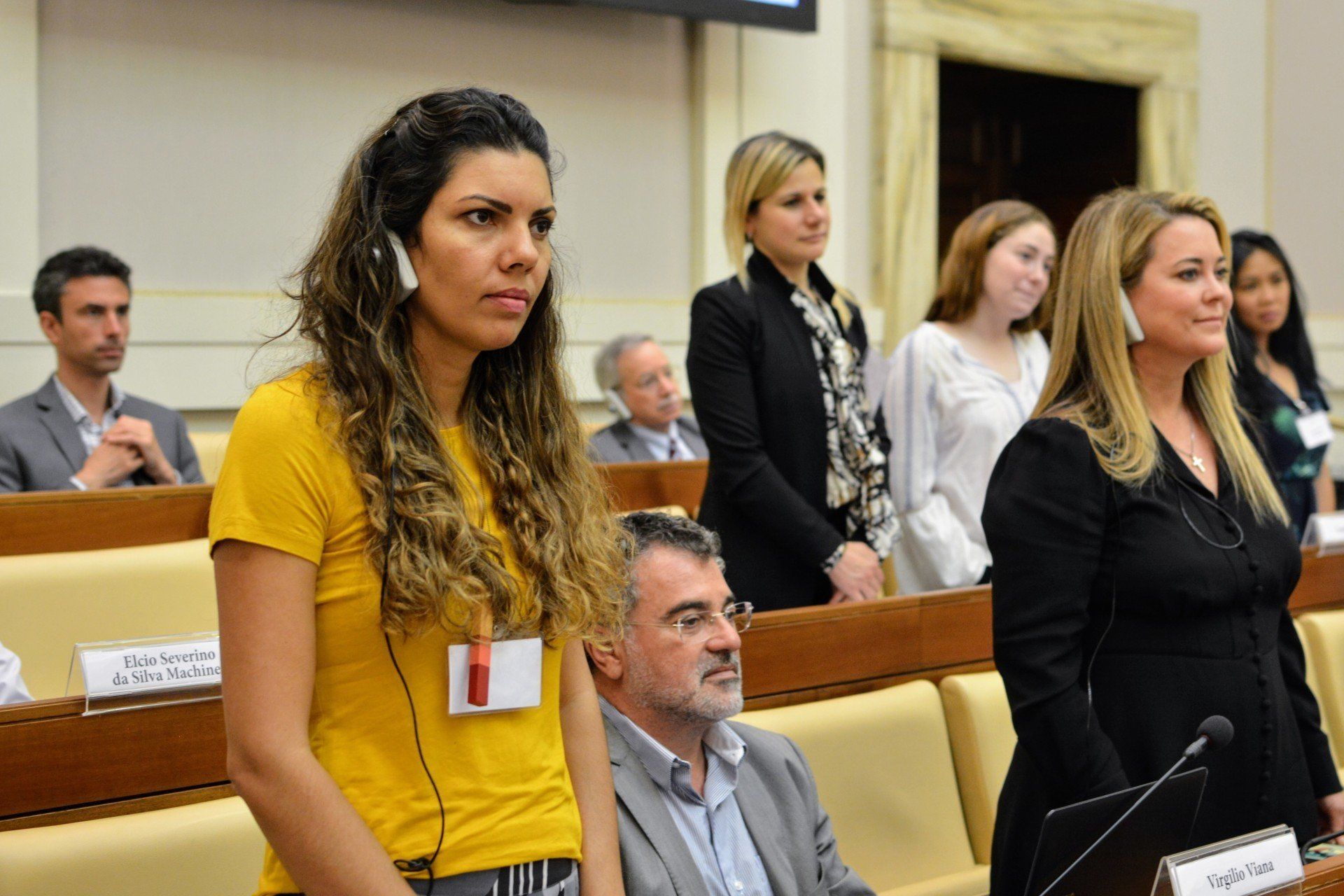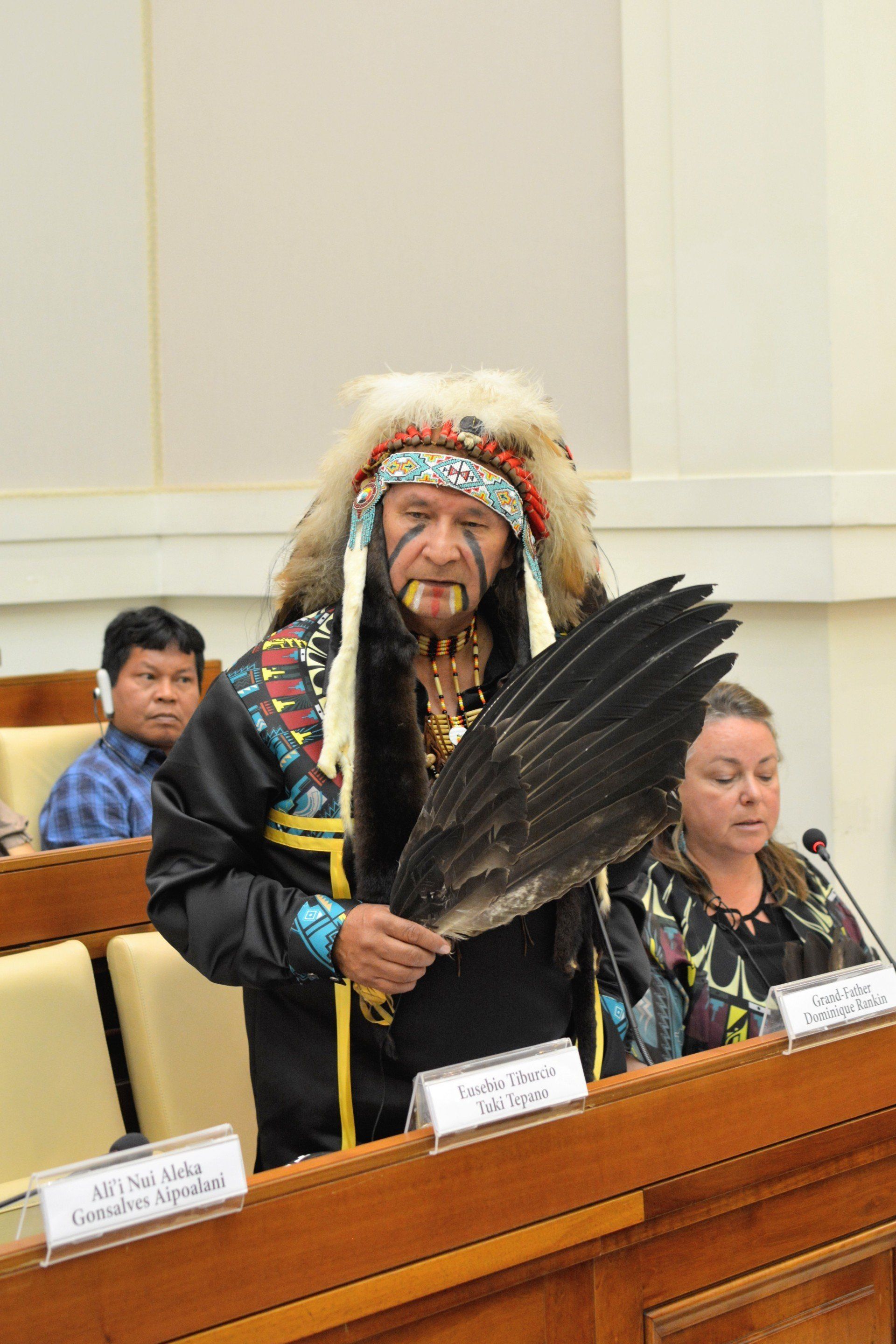Casina Pio IV, Vatican City—Blue Chip Foundation, represented by founder Jennifer Gross, participated in the June 2018 Ethics in Action meeting to address the Sustainable Development Goals and call for solidarity with indigenous peoples across the world.
“The economic exclusion of indigenous peoples has to end if we are going to achieve the sustainable development goals,” says Gross. “There are approximately 370 million indigenous peoples worldwide, in over 90 countries. Indigenous peoples occupy 25 percent of the world’s surface area, and within that quarter lies 80 percent of the world’s remaining biodiversity. They are the custodians and ultimately responsible for the success of SDG 15. They hold vital ancestral knowledge and expertise on how to adapt, mitigate, and reduce climate and disaster risks. We need to listen to them and empower them to act on not only the land’s behalf, but on behalf of future generations.”
Indigenous peoples are on the forefront of the battle for sustainable development, but they’re facing opposition from all directions. Colonialism is encroaching on indigenous lands, forcing displacement and burning through natural resources at an alarming rate. The Sioux Standing Rock Tribe, for example, were overwhelmed by the power of the U.S. government and private industry in pursuit of the Dakota Access Pipeline – despite battles in federal court and clear violations of the Fort Laramie Treaty which guarantees the tribe ‘undisturbed use and occupation’ of its land. In the Amazon, Africa, Chile, Canada and countless other places, indigenous peoples’ rights are being abused and their lands are being stolen.
The Ethics in Action committee, joined by Pope Francis, several global organizations and the United Nations, recognize the rights, special needs and vulnerabilities of indigenous people. With the Universal Declaration of the Rights of Indigenous Peoples, the UN also recognized indigenous peoples’ unique global roles and rights, including rights of autonomy and sovereignty. Ethics in Action is calling for a “new framework of global sharing with indigenous peoples,” as well as a new moral vision that recognizes their contributions to the fulfillment of the SDGs.
Algonquin Hereditary Chief and Medicine Man Grandfather Dominque Rankin, who founded the Kina8at Organization, addressed the panel to explain the importance of women in the Algonquin culture. Born northwest of Quebec, Grandfather Dominique (written as T8aminik in Algonquin) was designated to take over his father’s role as hereditary chief at the age of seven.
“My ancestors are talking,” Grandfather Dominique said. “I didn’t go to school for a long time, but I went to the school of the forest where I was born. All of what we have said here today has touched my heart, and I will bring back to my peoples those words that I heard.”
After asking the women in the group to stand, Grandfather Dominique explained, “This is one of the first things we need to learn when we talk about Mother Earth. All the women standing up, they are called the Earth. They [are] linked to the earth; they are water carriers. They are medicine women for life because they gave birth. We always start with mother. My mother taught me a lot about the earth. She showed me the roots of the trees. Here are the roots standing up. They are our roots. It’s never too late to learn those things. Today we will open our hearts. Thank you to all the women here.”
Connecting with indigenous peoples requires practical action – and that means supporting indigenous communities through development financing, supporting the leadership and safety of indigenous women, and supporting programs that allow indigenous peoples to reconnect with their own cultures, languages and identities.
Part of that involves working toward genuine peace – a common thread throughout the convention.
